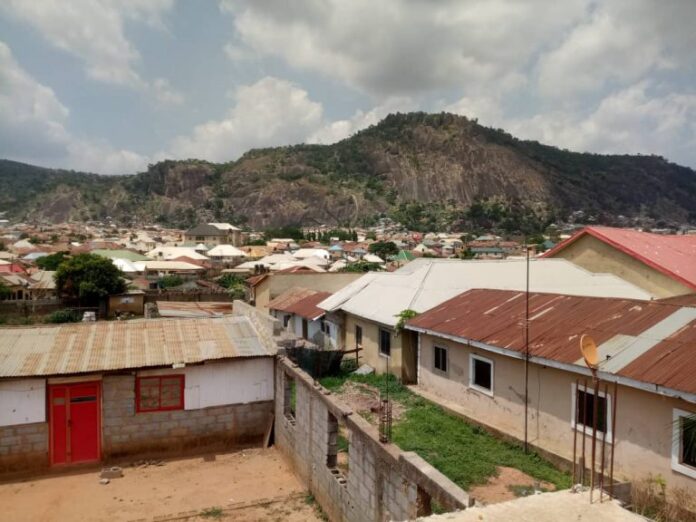By MAWA Foundation
In Nigeria, the government does not have a full understanding of how COVID-19 has negatively impacted the urban poor, and that many are in dire situations desperately looking for help. In this special report supported by the Open Society Initiative for West Africa (OSIWA), MAWA FOUNDATION uncovers how the pandemic is impacting the urban poor.
In this latest report, MAWA FOUNDATION interviewed over 73 persons in Nasarawa communities and Abuja the Nigerian capital city, eight in every 10 adults interviewed, said they are finding it difficult paying their bills since the outbreak of COVID-19. And, seven in every 10 adults interviewed, said they borrow from friends and family to buy food and feed their family.
Again, five out of every 10 adults interviewed, say they are finding it very difficult to pay their house rent, send their kids to school, and pay hospital bills. And, three out of every 10 adults interviewed, say they are facing acute financial difficulties and were forced to sell their properties to raise funds and cater for the family food and pay bills.

In all the adults interviewed, they said there was poverty and challenges before the outbreak of COVID-19, pointing out that the pandemic complicated their suffering and made life more unbearable.
For instance, one of the adults interviewed, while speaking to MAWA FOUNDATION at his Mpape-Abuja resident, narrated how he was disengaged from the Top Rank Hotel, located at Area 11 during the COVID-19 lockdown, and, since then he finds it extremely difficult to pay his bills and raise money to feed his family. He, however, added that he is contemplating withdrawing his 13-year-old daughter from school because money for her education fees is not readily available.
“Since I lost my job during the lockdown, my family has been facing acute difficulties, paying bills and feeding them has become a major challenge,” he told MAWA FOUNDATION
In the same narrative, different groups of Women in Enugu, Nasarawa, and Abuja, who are in the informal sector, while speaking to MAWA, said the COVID-19 pandemic adversely affected their businesses, and, that is making life difficult and unbearable for them and their family.
In Masaka, New Nyanya, Ado, Uke communities in Nasarawa state, of the 30 adults interviewed, 25 said the impact of COVID-19 on the poor is so huge that some girls between the age of 14 and 15 are forced into sex workers so they can raise money to feed their family and help them in paying bills especially the house rent.

In some of the informal settlements in Abuja such as Kuje, Mpape, Kubwa Dutse Alhaji, and communities in Nasarawa state, some of the adults who spoke during interviews, explaining how the COVID-19 adversely affected them, narrated how they had since withdrawn their kids from school and stopped their education because they can no longer afford the fees.
Mr. Chijioke Oke, and Mr. Nicholas Ajuma, both residents of Masaka told MAWA that they were forced to withdraw their kids from private to public school because they could not afford the fee having lost their job during the lockdown.
The leaders of Motor Mechanics Association in Masaka area of Nasarawa state in a focused group discussion disclosed that 83 of its members were forced to leave for their respective villages when they could not cope with the COVID-19 crisis. They added although they contributed money among themselves to assist members that were adversely affected, not all members were assisted because the money could not go round.
In the informal sector, artisans continue to narrate how the COVID-19 pandemic is having a huge impact on them. For instance, some sellers at the Keffi community in Nasarawa state said since the pandemic outbreak, they have not sold a single brick.
Mr. Uja who owns and operates a block industry, said their customers who are mainly civil servants are facing a terrible economic crisis as a result of the pandemic, hence building a house is not part of their priority rather the struggle to feed their family and pay bills.

Mr. Johnson Kabiesi, who lost a job in a hotel during the COVID-19 lockdown, in an interview, narrated how Capital Global Apartment, a hotel operating in the Asokoro area of Abuja, sacked more than 120 staff. He, however, added that all the affected workers are the poor who now struggle to feed and pay bills because they relied on their salary solely for their income.
Farmers in Angwa Jaba and Gidan Zakara communities at Nasarawa state in a focused group discussion, disclosed that they have since begun facing predicaments since the lockdown began, pointing out that their customers that come from Kano and Niger to buy their farm produce no longer come. They, however, told MAWA that as a result of their inability to sell their farm produce, they are now battling with poverty which has forced some of them to withdraw their children from school; hence they cannot afford the fees.
Out of 15 women interviewed in Keffi, Masaka, Gidan Zakara, Kuje, Kubwa, Kabayi communities in Nasarawa state and Abuja, 10 said they are aware of some marriages that got terminated as a result of the economic crisis of COVID-19. They said the women who could not bear the unprecedented predicament thrown at the family by COVID-19, divorced their husband and left the marriage.
Those who say they lost their job to COVID-19, say they are still unemployed and have resorted to doing menial jobs in their struggle to feed their family and pay bills, while some say they have relocated their family to the village while waiting for economic improvement before they bring them back to the city.
In the 73 urban poor dwellers that were interviewed, they all said that their ability to save money has been eroded by the COVID-19 pandemic. They say the pandemic put them in a deep financial struggle that is making feeding their family difficult let alone making savings.
MAWA findings in her Special Report show the economic crisis Nigerians go through as a result of COVID-19 is real. The difficulties among them are paying bills, especially house rent and school fees. However, grave difficulties in paying house rent put families and households at the risk for eviction, especially in the urban poor where many landlords depend on rents from tenants for survival.

At the peak of COVID-19, the Nigerian state says she has set aside the sum of N288 billion for intervention programmes under its Economic Sustainability Plan. And this is mainly targeted at supporting citizens who were affected by the COVID-19 pandemic, mainly those that lost their job and businesses.
However, 18 out of 21 persons interviewed, said they did not get any support fund from the government COVID-19 intervention fund, two out of the 20 said they got fund, but were forced to refund 15% as a loan processing fee.
With a 33.3% unemployment rate and approximately 83 million people living below the poverty line, and the COVID-19 economic crisis that has led to job loss put citizens in a deeper economic mess, the Nigeria state is in a dire situation that needs desperate intervention to address. And, the state must do that by creating jobs that will lead to sustainable income.
- This special report was supported by the Open Society Initiative for West Africa (OSIWA)







